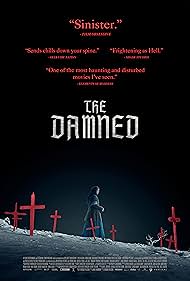In the winter of 1862, during the Civil War, the U.S. Army sends a company of volunteers to patrol the uncharted western territories. Minervini built the set in Montana, then let the cast live in it for two months. The dialogue and thoughts expressed are those that the actors came up with while living in the wilderness and imagining themselves as soldiers in the Civil War. We are not told where it is, we are not even told the names of the soldiers. After the regular troops leave, they find themselves under the command of a John Brown-style patriarch with a flowing beard, and his teenage sons have also enlisted. The troops are a mixed lot, some middle-aged, even elderly, most in their thirties. All lacking military experience, they share knowledge and skills are transferred. We witness mobile sentries, shots at distant horsemen. A buffalo is shot and butchered, The bleak landscape, the rolling hills, the mountain meadows, the drifting snow, the cold rations that leak, all contribute to a sense of existential despair that builds. There is a battle, we don’t see the enemy, we see the casualties of the unit. War is hell, especially when you don’t know why you’re there. A Ken Loach-style film, with no set dialogue from day to day and lots of ordinary people playing actors, amateurs like the soldiers. This improvisation leads to philosophical, religious and political discussions around the campfires. Some of it is not welcome. But it’s a small distraction from this raw portrayal of men at war. Written and directed by Roberto Minervini, 8/10.




 37/16
37/16